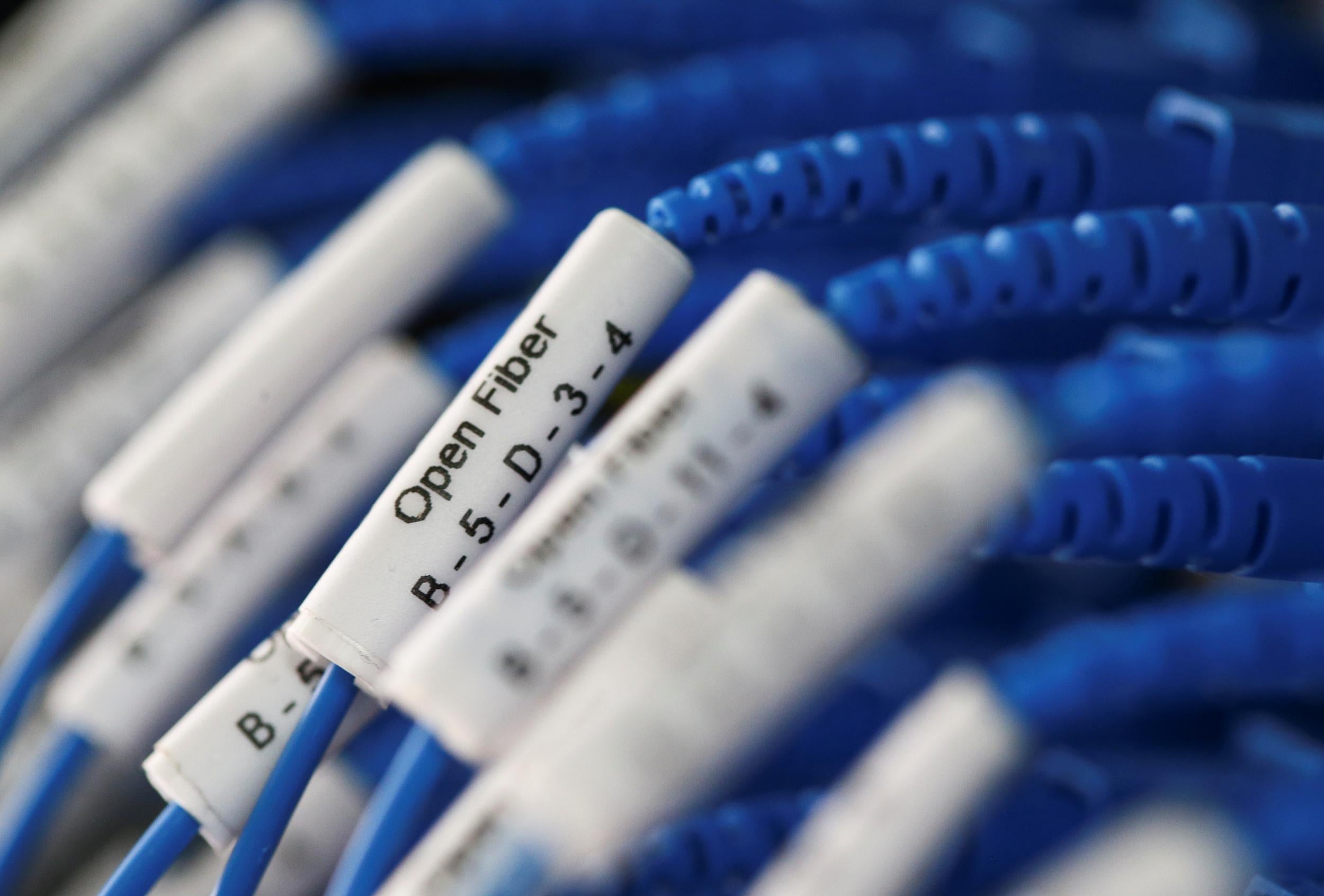Britain must get out of the slow lane when it comes to broadband
The UK needs a bold vision for tech that is matched by the determination to drive it through

Amid the furore surrounding the resignations of David Davis and Boris Johnson from the cabinet, another news story slipped out relatively unnoticed.
It’s one that has just as far-reaching consequences for Britain’s economy and its ability to compete globally, for the country’s future generations, as continuing membership of the EU. It is that Britain has slipped to 35th place in the annual ranking of global broadband speeds. Incredibly, and shamefully, we now lag behind the likes of Madagascar, Bulgaria, Latvia, Lithuania, and Hungary.
Make no mistake, this is one of the key ways a modern economy is judged – especially one that likes to claim it is totally across tech, a leader in FinTech, that sees itself as the potential incubator of numerous world-beating startups, a challenger, with London’s Tech City, to Silicon Valley.
Some boast, when downloading a 5GB HD movie takes just over 36 minutes in the UK, versus 11 minutes 18 seconds in top-placed Singapore, 14 minutes 50 seconds in second-ranked Sweden, and even 17 minutes 41 seconds in Romania. Yes, that’s right. Romania. Its average speed of 38.6mbps was more than twice Britain’s 18.75mbps. In all, Britain was outperformed by 25 other European countries, as well as the US and Japan.
The data was drawn from 200 countries during the 12 months to 29 May, by M-Lab, a partnership between Google, Princeton University and the Open Technology Institute in Washington. The analysis for the UK was conducted by Cable, which compares broadband speeds and services. Dan Howdle from Cable said it was “somewhat sad to see the UK not faring better”.
That is something of an understatement. Too much of Britain’s network is still based on the old copper wire telephone system, some of which is more than 100 years old.
The government maintains it has delivered on a pledge to extend “superfast” broadband to 95 per cent of homes. But that is defined as more than 24mbps. A rate of 24mbps is tortoise-slow compared to elsewhere – look at Romania.
The very fastest downloads are achieved by fibre-optic cables, feeding directly into businesses and residences, so-called “FTTP” which stands for fibre to the premises. Currently, just 560,000 premises in the UK are connected to FTTP. By the end of 2020 that figure should be three million, if BT subsidiary Openreach stays on track with its upgrade programme.
By then, however, we will be even lower in the charts. And, don’t forget, that’s a big “if” regarding BT’s ability to do the work – fail or stall, and we could be right down the table. Said Howdle: “A number of other countries have leapfrogged us since last year, including France and Madagascar. Compared to many other countries both in and out of Europe, the UK has simply come too late to a full fibre solution. Despite plans to roll out FTTP to UK homes across the next decade or so, the UK is likely to fall further behind while we wait.”
As we argue over a new runway at Heathrow and the building of HS2, there is a sense of a country mired in the past, debating expanding the infrastructure for old technologies, while the most urgent imperative, the one that is staring the UK in the face, is to digitalise the economy.
Enabling me to get from London to Manchester several minutes quicker has a “so what” aspect to it. What would I prefer: reaching Manchester sooner, but not being able to work on the way because I kept losing internet access and the download was slow, or to get there on the present train service, but with unbroken access and a super-quick download?
We should of course, be doing both: boosting transport links while at the same time, ensuring we’re matching our international competitors for internet availability and download speeds.
Improved railways, roads and airports are vital, but so is raising the game in digital. We need to develop and grow our own market-beating tech businesses, and attract tech-hungry foreign investment. Tech investors and startups will go where they can function most efficiently – and in tech that means fastest.
This should be occupying political minds as much as, if not more than, enabling more aircraft to land and take-off, or sending more trains through the Midlands countryside.
What Britain requires, a hugely successful US tech entrepreneur said to me, is a bold vision for tech but one that is matched by the determination to drive it through – and quickly. He described it as a UK equivalent of the Manhattan Project or the building of the Panama Canal – such is its scale and importance. Waiting years for copper wiring to be replaced is not the answer.
We need a national grid for digital, with large and small towers, fibre-optic cabling everywhere, and the most advanced software. And, we must leave enough capacity to improve again, and fast, should technology make another leap. And, most vital, we must push it through – and not do what we always do, which is to immerse ourselves in planning laws, nimby disputes and rows about the cost.
The alternative is that we remain in the slow lane, and other countries continue to pass us by. And worse, that investors look the other way.
Chris Blackhurst is a former editor of The Independent, and executive director of C|T|F Partners, the campaigns and strategic communications advisory firm.
Subscribe to Independent Premium to bookmark this article
Want to bookmark your favourite articles and stories to read or reference later? Start your Independent Premium subscription today.

Join our commenting forum
Join thought-provoking conversations, follow other Independent readers and see their replies